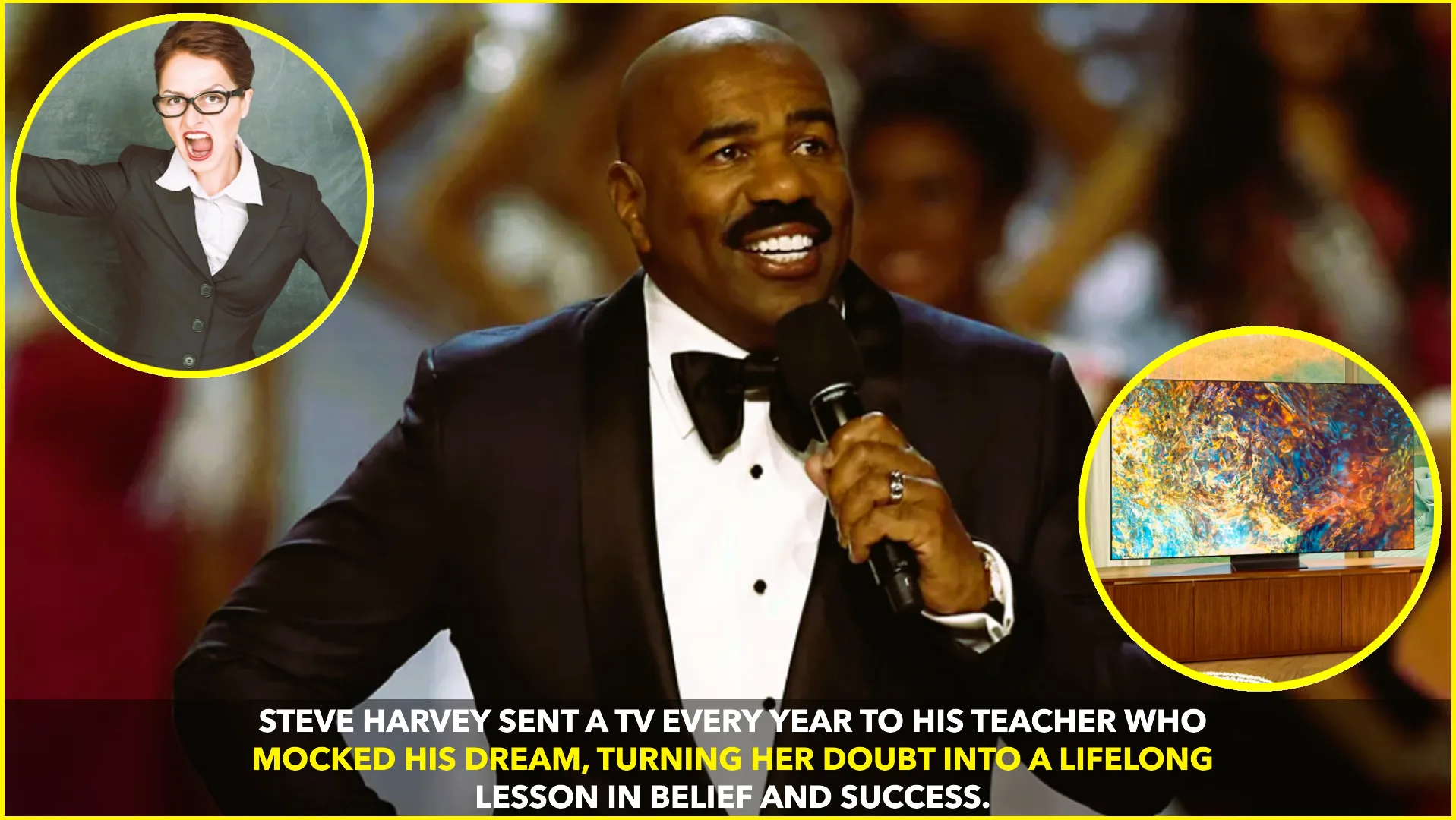When Steve Harvey was in the sixth grade, he had a dream that sounded impossible to many — to be on television. At the time, Harvey struggled with a severe stutter, and his confidence was often tested by those around him. During one class, his teacher asked every student to write down what they wanted to be when they grew up. While others wrote typical answers like doctor or firefighter, young Steve boldly wrote, “I want to be on TV.”
Instead of encouragement, his teacher mocked him in front of his classmates. According to Harvey’s interview on Oprah’s Master Class, she even called his parents and told them that their son was being “unrealistic and disrespectful.” That moment stuck with him for years — not as a wound, but as a challenge.
Fast forward to adulthood, and Steve Harvey had become one of the most recognizable faces on television — a comedian, actor, and the host of major shows like Family Feud and The Steve Harvey Show. But he never forgot that moment in sixth grade. He decided to teach his teacher a lesson in the most poetic way possible — not through anger, but through proof of his success.
As reported by Market Realist, Harvey started sending his old teacher a television set every Christmas. Along with it came a simple message: “Now every year, you can see me on TV.” It wasn’t just an act of revenge — it was a statement of triumph. He wanted her to witness, year after year, that the same stuttering boy she once doubted had achieved exactly what he said he would.
Harvey revealed that he continued this tradition for as long as the teacher was alive. It was his symbolic way of saying, “You don’t get to decide my limits.” In interviews, he’s shared how that painful memory became fuel for his determination. Instead of letting her words crush him, he used them as motivation to push harder toward his dream.
This story resonates with millions because it’s more than just a tale of success — it’s about resilience and self-belief. Harvey’s life is a reminder that other people’s opinions do not define your destiny. What matters most is your own conviction and willingness to keep going, even when the world laughs at your dreams.
In his motivational talks, Harvey often shares this story to inspire young people who are told they “can’t.” He emphasizes the importance of holding onto one’s vision, no matter how unrealistic it may sound to others. “If you believe it, work for it, and never give up,” Harvey once said, “you can make it happen — even if nobody else sees it yet.”
Steve Harvey’s journey from a stuttering child to a global television icon is a true testament to the power of persistence. His teacher’s disbelief may have planted doubt in others, but it only planted determination in him. Every time he appeared on TV, it wasn’t just a victory for his career — it was a message to dreamers everywhere that no one else has the right to tell you what you can’t do.
In the end, Harvey’s yearly gesture wasn’t about holding a grudge. It was about celebrating the fulfillment of a promise — the one he made to himself in that sixth-grade classroom. A promise to rise, to shine, and to turn disbelief into destiny.
Source:
Oprah’s Master Class (OWN) and Market Realist










